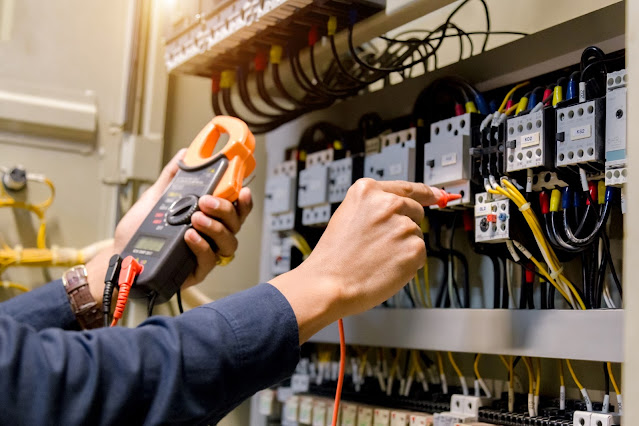Innovations in HVAC Systems and Their Impact on the Mechanical Electrical And Plumbing Services Market
 |
| Mechanical Electrical And Plumbing Services Market |
Innovations in Heating, Ventilation, and Air Conditioning (HVAC) systems are transforming the Mechanical Electrical And Plumbing (MEP) services market, offering improved energy efficiency, comfort, and environmental sustainability. These innovations have a significant impact on the way HVAC systems are designed, installed, and maintained, as well as the services provided by MEP contractors.
One key innovation in HVAC
systems is the development of smart and connected technologies. These
technologies utilize sensors, actuators, and advanced control systems to
optimize HVAC performance and improve energy efficiency. Smart thermostats, for
example, enable users to control and schedule their HVAC systems remotely,
leading to energy savings and personalized comfort. These connected systems
also allow for remote monitoring and diagnostics, enabling proactive
maintenance and efficient troubleshooting.
Global
mechanical, electrical, and plumbing (MEP) services market is
consistently driven by increasing infrastructural development worldwide.
Another significant innovation is
the integration of HVAC systems with building automation systems (BAS). BAS
provides centralized control and coordination of various building systems,
including HVAC, lighting, and security. Integration with BAS allows for
enhanced coordination between different MEP systems, optimizing energy
consumption, and ensuring a comfortable and efficient indoor environment. This
integration also enables data collection and analysis, facilitating data-driven
decision-making and performance optimization.
Energy efficiency is a driving
force behind HVAC innovations. Manufacturers are constantly developing new
technologies to reduce energy consumption and carbon emissions. High-efficiency
HVAC equipment, such as variable refrigerant flow (VRF) systems, heat pumps,
and energy recovery ventilators (ERV), are becoming more prevalent in the
market. These systems offer superior energy performance, precise control, and
enhanced comfort while reducing energy waste.
Furthermore, innovations in HVAC
system design focus on sustainability and environmental impact. Green building
practices and certifications, such as LEED (Leadership in Energy and
Environmental Design), encourage the integration of renewable energy sources,
energy recovery systems, and advanced filtration technologies into HVAC
systems. Solar panels, geothermal systems, and heat recovery ventilation (HRV)
systems are examples of innovations that contribute to energy efficiency and
environmental sustainability.
The global
foldable container house market size was valued at US$
8.5 billion in 2023 and is projected to reach US$ 15.94
billion by 2030, growing at a CAGR of 9.4% from 2023 to 2030.
The impact of HVAC innovations on
the MEP services market is multifaceted. Firstly, MEP contractors need to stay
updated on the latest technologies and trends to meet customer expectations and
deliver high-quality services. They must possess the expertise and knowledge to
install, maintain, and repair these advanced HVAC systems. The demand for
skilled professionals in the MEP services industry is increasing, creating new
opportunities and challenges for contractors.
Additionally, HVAC innovations
provide MEP service providers with the opportunity to differentiate themselves
in the market. By offering innovative solutions and energy-efficient HVAC
systems, contractors can attract environmentally conscious clients and gain a
competitive edge. Providing value-added services, such as energy audits, system
optimization, and performance monitoring, allows MEP contractors to deliver
comprehensive solutions and build long-term relationships with their clients.
Innovations in HVAC systems are
reshaping the Mechanical Electrical And Plumbing (MEP) services market by
improving energy efficiency, comfort, and sustainability. The integration of
smart technologies, the use of advanced control systems, and the emphasis on
energy efficiency and environmental impact are driving changes in the industry.
MEP service providers need to adapt to these innovations, acquire the necessary
skills, and embrace the opportunities they present. By doing so, they can
deliver cutting-edge solutions, meet customer expectations, and thrive in an
evolving market.


Comments
Post a Comment